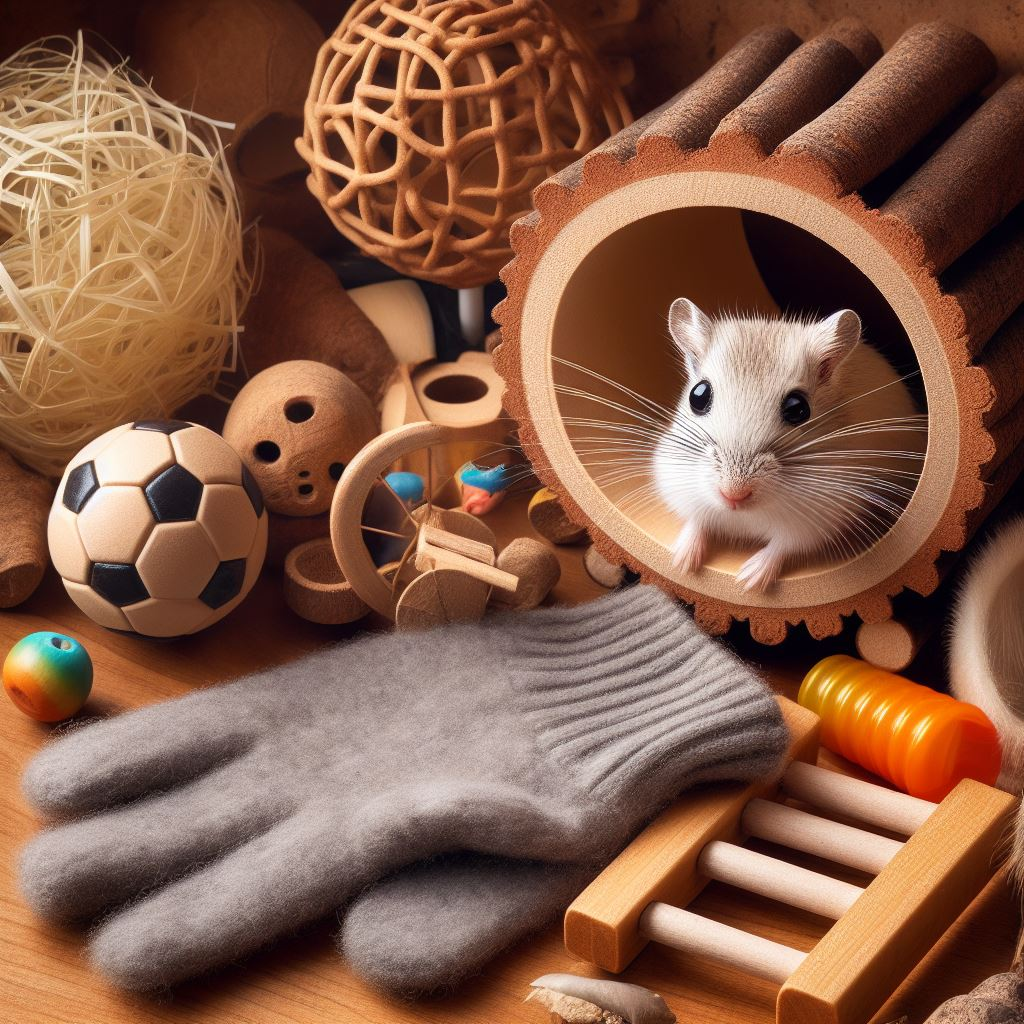Why Do Gerbils Bury Their Food?
Have you ever wondered why your gerbil buries its food in the sand or hides it in the corner of its cage? This behavior, although common, raises the question of its underlying reasons. In this article, I will answer this question and provide insights on how to deal with your gerbil’s food-burying habits.
Burying Food is an Instinctual Behavior in Gerbils
Gerbils, originating from desert regions, face harsh living conditions in the wild. Scarce food resources, drastic climate changes, and numerous predators threaten their survival. To adapt to this environment, gerbils have evolved an instinctual behavior of burying their food. This not only helps them rely on stored food during scarcity but also protects it from being discovered and stolen by other animals.
In the wild, gerbils bury their food in the sand or hide it in their burrows, offering three key advantages:
Winter Food Reserves: Gerbils hibernate during winter, reducing their body temperature and metabolism. Before hibernation, they accumulate a substantial amount of food to sustain them through this period. Burying food effectively stores it, preventing freezing or drying.
Ensuring Freshness: Gerbils primarily consume plant-based foods such as seeds, fruits, and roots, which can easily spoil in the open air, losing nutrition and moisture. Sand acts as a preservative, creating a barrier against air and maintaining optimal humidity and temperature to extend the shelf life of their food.
Avoiding Detection and Theft: Gerbils face various natural predators like foxes, owls, and snakes. These animals use their keen senses to locate gerbil food. Burying food effectively conceals its scent and appearance, reducing the risk of discovery.
Pet Gerbils Continue to Bury Food
Even in captivity, gerbils persist in burying food due to their genetic instincts that haven’t completely disappeared. Additionally, certain conditions in their living environment trigger this burying reflex. Reasons for pet gerbils burying food include:
Genetic Instincts: Burying food is an innate behavior in gerbils, determined by their genes. Even with abundant food in captivity, they instinctively stash away food as a conservative strategy, enhancing their chances of survival.
Food Bowl Triggers Burying Reflex: Many people use food bowls for feeding gerbils, which can stimulate their burying reflex. When gerbils see food in a bowl, they might perceive it as a rare opportunity and promptly move it to their stash. This preemptive behavior prevents food theft by other gerbils or humans.
Avoiding “Predators” (Humans): Pet gerbils, being cautious creatures, view humans as potential “predators” that could take away or contaminate their food. Burying food in the sand or cage corners helps protect it from human detection and interference.
Burying Food Can Harm Gerbil Health
While burying food is a natural instinct in gerbils, it can be detrimental to their health in a domestic setting. Buried food is prone to rotting, leading to the growth of bacteria and mold. Consuming spoiled food can cause digestive issues and even serious illnesses like diarrhea, enteritis, or hepatitis. Additionally, buried food contributes to wastage, increasing the costs of care and cleaning.

Reducing Food Burying Behavior in Pet Gerbils
To minimize the habit of burying food in pet gerbils, consider the following strategies:
Feed in Moderation: Avoid overfeeding, as excess food encourages gerbils to bury it. Provide an appropriate amount based on their weight and activity level, typically around 10-15 grams per gerbil per day. Promptly remove any uneaten food to prevent accumulation.
Scatter Feed Instead of Using a Bowl: Instead of using a food bowl, scatter food in various areas of the gerbil cage, such as in the sand, bedding, or among toys. This simulates the foraging behavior seen in the wild, increasing their enjoyment and activity levels while reducing the desire to bury food.
Regularly Clean the Cage: Despite these efforts, some food burying may still occur. To ensure gerbil health, inspect and clean the cage regularly, at least once a week. This practice prevents gerbils from consuming spoiled food and maintains a hygienic cage environment.
Conclusion: Burying Food is an Innate Gerbil Behavior
In conclusion, burying food is an instinctual behavior in gerbils, developed as a survival strategy in their native desert habitat. While this behavior persists in captivity, it poses health risks for pet gerbils. By implementing measures like moderate feeding, scattering food, and regular cage cleaning, we can ensure the well-being and happiness of our pet gerbils.



